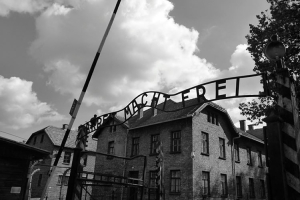Een trauma erven
Nico is een man van midden veertig die in paniek raakt in de buurt van water. Hij kan niet zwemmen. Naar zwemles mocht hij niet van zijn moeder. Op vakantie gaat zijn gezin naar het strand, hij gaat wat anders doen. Tijdens een gesprek komt naar voren dat een paar familieleden van zijn moeder verdronken zijn voordat zijn moeder werd geboren. Hij herinnert zich dat zijn moeder ineenkromp als ze in de buurt van een kanaal kwam.
Hij kijkt nu anders naar deze situatie. Als volwassen man kan hij zijn angstgevoel combineren met nadenken over veiligheid en de maatregelen die hij kan nemen.
Ervaringen in een familie worden doorgegeven. Dat weten we al vanuit het systemisch werk. Hoe dat precies gebeurt, is nog onduidelijk. Dat de toegang tot bepaalde genen wordt verstoord door de invloed van traumatische ervaringen, is kortgeleden uit onderzoek naar voren gekomen. Opmerkelijke feiten. Ik geef u een samenvatting van het onderzoek. Het volledige artikel uit Neuroscience News is hieronder in het Engels te lezen.
Een internationaal team van wetenschappers heeft de genen bestudeerd van een groep mensen die een concentratiekamp hebben overleefd. Deze 32 mensen hebben traumatische ervaringen doorgemaakt zoals marteling, leven in een concentratiekamp en onderduiken voor de bezetter tijdens de tweede wereldoorlog. Een vergelijkend onderzoek is gedaan met mensen die hun kindertijd tijdens de tweede wereldoorlog hebben meegemaakt buiten Europa.
De wetenschappers richtten zich op de epigenetische verandering. Met ‘epigenetische verandering’ worden alle processen bedoeld die van invloed zijn op toegang tot genen. Dus niet een genetische verandering. De gevolgen zijn ondermeer: posttraumatische stress stoornis, depressie en effecten van heftige gebeurtenissen door de generaties heen.
De resultaten suggereren dat ‘epigenetische erfenis’ ontstaat waar iemands levenservaring effect heeft op de nakomelingen. Deze erfenis kan een enorme rol spelen in de ontwikkeling van kinderen. Volgens de onderzoekers kan het effect op de genen, van deze onderzochte groep, alleen zijn ontstaan tijdens de holocaust. Aanvullend wordt gesteld dat omgevingsfactoren zoals stress, roken of eetgewoonten invloed kunnen hebben op de nakomelingen door het effect op de genen.
Systemisch perspectief
Op basis van dit onderzoek kan gesteld worden dat bepaald gedrag van mensen wordt beïnvloed door het systeem van herkomst, de ouders. Traumatische ervaringen spelen dus een belangrijke rol in het leven van ouders en kinderen. Vanuit systemisch werk kijken we ook naar wat ouders van ouders hebben meegegeven. Als de toegang tot bepaalde genen wordt belemmerd dan heeft dat effect op dagelijks functioneren zonder dat iemand zich daar bewust van is.
Inheriting Trauma: Holocaust Survivors Pass Trauma to Their Children’s Genes
August 25, 2015
Neuroscience News
Pre-conception trauma results in transmission of epigenetic changes from the exposed parents to their children.
An international team lead by Rachel Yehuda, professor at Mount Sinai hospital in New York, and for the molecular analyses Elisabeth Binder, director at the Max Planck Institute of Psychiatry in Munich, studied the genes of 32 Jewish individuals who had been held in concentration camps, experienced torture or had been forced into hiding during the Second World War. The researchers additionally examined the genes of the group’s children who are known to have an increased likelihood of stress disorders, and compared the results with Jewish families living outside Europe during the Holocaust.
The scientists concentrated on epigenetic changes in the FKBP5 gene which has long been the research focus of Elisabeth Binder. “With ‘epigenetic’ we mean all processes that do not change the actual genetic code but alter its accessibility,” explains Elisabeth Binder. “FKPB5 determines how effectively the organism can react to stress hormones, and so regulates the entire stress hormone system. FKBP5 is altered in several diseases such as posttraumatic stress disorder or major depression and has now been associated with intergenerational effects.”
The researchers additionally examined the genes of the group’s children who are known to have an increased likelihood of stress disorders, and compared the results with Jewish families living outside Europe during the Holocaust. Image is for illustrative purposes only.
The results suggest that ‘epigenetic inheritance’, where a person’s life experiences can affect the genes of their offspring, may play an important part in a child’s development. “The gene changes in the children did not appear to be mediated by adversity experienced during their own childhood but could only be attributed to Holocaust exposure in the parents,” said Rachel Yehuda. “Environmental influences such as stress, smoking or diet can affect the genes of our children. Early detection of such epigenetic marks may advance the development of preventive strategies to address the intergenerational effects of exposure to trauma.”
About this genetics and psychology research
Source: Elisabeth Binder – Max Planck Institute
Image Source: The image is in the public domain
Original Research: Abstract for “Holocaust exposure induced intergenerational effects on FKBP5 methylation” by Rachel Yehuda, Nikolaos P. Daskalakis, Linda M. Bierer, Heather N. Bader, Torsten Klengel, Florian Holsboer, and Elisabeth B Binder in Biological Psychiatry. Published online August 23 2015 doi:10.1016/j.biopsych.2015.08.005
Abstract
Holocaust exposure induced intergenerational effects on FKBP5 methylation
Background
The involvement of epigenetic mechanisms in intergenerational transmission of stress effects has been demonstrated in animals but not in humans.
Methods
Cytosine methylation within the gene encoding for FK506-binding-protein-5 (FKBP5) was measured in Holocaust survivors (n=32), their adult offspring (n=22), and respective demographically comparable parent (n=8) – offspring (n=9) controls. Cytosine-phosphate-guanine (CpG) sites for analysis were chosen based on their spatial proximity to the intron 7 glucocorticoid-response-elements (GREs).
Results
Holocaust exposure had an effect on FKBP5 methylation that was observed in exposed parents (F0) as well in their offspring (F1). These effects were observed at bin 3/site 6. Interestingly, in Holocaust survivors, methylation at this site was higher in comparison to controls, whereas in Holocaust offspring, methylation was lower. F0 and F1 methylation levels were significantly correlated. In contrast to the findings at bin 3/site 6, offspring methylation at bin 2/sites 3-5 associated with childhood physical and sexual abuse in interaction with an FKBP5 risk-allele, previously associated with vulnerability to psychological consequences of childhood adversity. The findings suggest the possibility of site-specificity to environmental influences, as sites in bins 3 and 2 were differentially associated with parental trauma and the offspring’s own childhood trauma, respectively. FKBP5 methylation averaged across the three bins examined, associated with wake-up cortisol levels, indicating functional relevance of the methylation measures.
Conclusions
This is the first demonstration of transmission of pre-conception parental trauma to child associated with epigenetic changes in both generations, providing a potential insight into how severe psychological trauma can have intergenerational effects.
“Holocaust exposure induced intergenerational effects on FKBP5 methylation” by Rachel Yehuda, Nikolaos P. Daskalakis, Linda M. Bierer, Heather N. Bader, Torsten Klengel, Florian Holsboer, and Elisabeth B Binder in Biological Psychiatry. Published online August 23 2015 doi:10.1016/j.biopsych.2015.08.005
Feel free to share this neuroscience article.
Dit onderzoek is hoopgevend voor mogelijke oplossingen van trauma. De zoektocht naar de effectiviteit van behandelmethoden kan beginnen. De vraag die mij voorlopig bezig blijft houden: hoe is het proces van de blokkade van bepaalde genen om te keren zodat iemand zijn of haar volledig potentieel kan benutten?
Mogelijk levert het Systemisch Werk een bijdrage.


